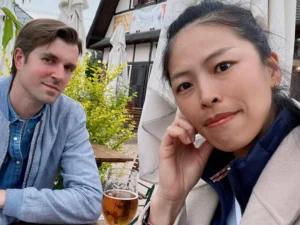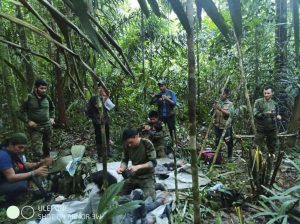Taiwan’s top court on Friday said some hunting restrictions placed on the island’s Indigenous inhabitants were unconstitutional but stopped short of supporting the complete overhaul of regulations that campaigners had pushed for.
Hunting restrictions have become a bone of contention among Taiwan’s indigenous communities, who have long felt marginalised and discriminated against by the Han Chinese majority that first began arriving in the 17th century.
Under current regulations, are only allowed to hunt with homemade rifles during certain festival days and only with prior approval from authorities.
Also read: Good news for non-Taiwanese couples: Taiwan Courts ruling on same sex-marriages
Activists say homemade rifles are dangerous and argue that the restrictions impede on the subsistence hunting traditions their communities have practiced for centuries.
Friday’s ruling by Taiwan’s Constitutional Court was sparked by the 2013 prosecution of Tama Talum, a member of the Bunun tribe, for killing two protected species with a modified rifle.
Talum, 62, was sentenced to 3.5 years in prison, a verdict that caused anger within Indigenous communities and sparked a long-running legal fightback.
Talum said he was following tribal customs and was hunting the animals as food for his mother who was used to eating wild game.
The prosecution went up to the Supreme Court, which upheld the conviction and jail term.
Also read: Wine Betelnut for ‘spirits’: How this Taiwan tribe is saving its culture
But it also asked the Constitutional Court to look at the current laws governing hunting.
In Friday’s ruling a panel of 15 judges declared that making Indigenous communities apply for advance permission to hunt, and detail how many animals they expected to kill, was unconstitutional.
But it declined to overturn the homemade rifle ban or allow Indigenous hunters to kill protected species.
“The constitution recognises both the protection of indigenous people’s right to practice their hunting culture and the protection of the environment and ecology,” chief justice Hsu Tzong-li said.
“Both fundamental values are equally important.”
Hunting was once a core way of life for Taiwan’s indigenous people who — much like the native populations of Australia and the Americas — were decimated by waves of immigration and have faced a long history of discrimination.
Taiwan’s 16 recognised Indigenous tribes led a comparatively uninterrupted life for thousands of years before immigrants first began arriving from the Chinese mainland.
They are an Austronesian people — their languages, cultures and traditions far more closely linked to populations in Southeast Asia and the Pacific than China.
They now makeup only 2.5 % of Taiwan’s 23 million population and remain marginalised, facing lower wages, higher rates of unemployment and poorer health indicators.






